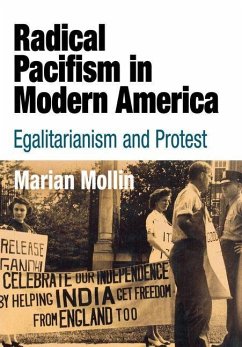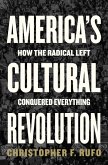Radical Pacifism in Modern America traces cycles of success and decline in the radical wing of the American peace movement, an egalitarian strain of pacifism that stood at the vanguard of antimilitarist organizing and American radical dissent from 1940 to 1970.
Using traditional archival material and oral history sources, Marian Mollin examines how gender and race shaped and limited the political efforts of radical pacifist women and men, highlighting how activists linked pacifism to militant masculinity and privileged the priorities of its predominantly white members. In spite of the invisibility that this framework imposed on activist women, the history of this movement belies accounts that relegate women to the margins of American radicalism and mixed-sex political efforts. Motivated by a strong egalitarianism, radical pacifist women rejected separatist organizing strategies and, instead, worked alongside men at the front lines of the struggle to construct a new paradigm of social and political change. Their compelling examples of female militancy and leadership challenge the essentialist association of female pacifism with motherhood and expand the definition of political action to include women's political work in both the public and private spheres. Focusing on the vexed alliance between white peace activists and black civil rights workers, Mollin similarly details the difficulties that arose at the points where their movements overlapped and challenges the seemingly natural association between peace and civil rights.
Emphasizing the actions undertaken by militant activists, Radical Pacifism in Modern America illuminates the complex relationship between gender, race, activism, and political culture, identifying critical factors that simultaneously hindered and facilitated grassroots efforts at social and political change.
Hinweis: Dieser Artikel kann nur an eine deutsche Lieferadresse ausgeliefert werden.
Using traditional archival material and oral history sources, Marian Mollin examines how gender and race shaped and limited the political efforts of radical pacifist women and men, highlighting how activists linked pacifism to militant masculinity and privileged the priorities of its predominantly white members. In spite of the invisibility that this framework imposed on activist women, the history of this movement belies accounts that relegate women to the margins of American radicalism and mixed-sex political efforts. Motivated by a strong egalitarianism, radical pacifist women rejected separatist organizing strategies and, instead, worked alongside men at the front lines of the struggle to construct a new paradigm of social and political change. Their compelling examples of female militancy and leadership challenge the essentialist association of female pacifism with motherhood and expand the definition of political action to include women's political work in both the public and private spheres. Focusing on the vexed alliance between white peace activists and black civil rights workers, Mollin similarly details the difficulties that arose at the points where their movements overlapped and challenges the seemingly natural association between peace and civil rights.
Emphasizing the actions undertaken by militant activists, Radical Pacifism in Modern America illuminates the complex relationship between gender, race, activism, and political culture, identifying critical factors that simultaneously hindered and facilitated grassroots efforts at social and political change.
Dieser Download kann aus rechtlichen Gründen nur mit Rechnungsadresse in A, D ausgeliefert werden.
Hinweis: Dieser Artikel kann nur an eine deutsche Lieferadresse ausgeliefert werden.









